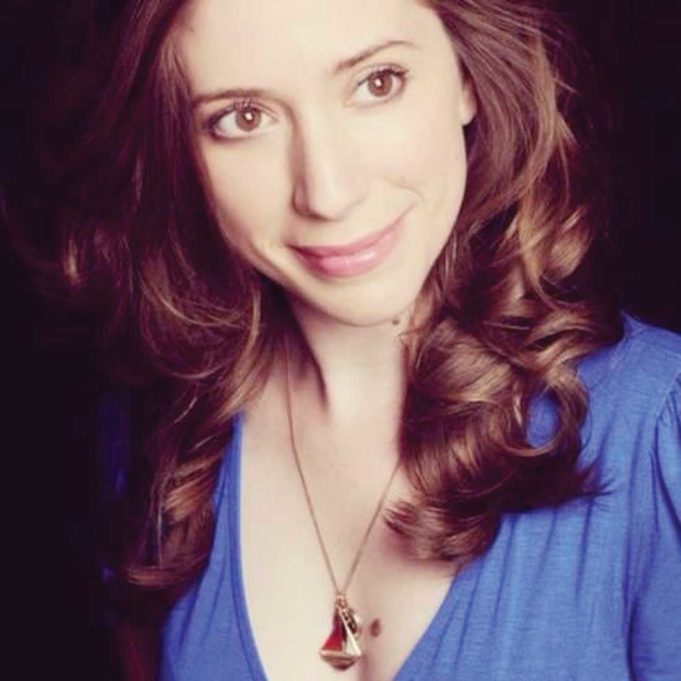In May, I earned my doctorate from Texas Christian University. In June, a media firestorm was unleashed on the subject of women earning doctorates. Last week, British cultural historian and columnist Dr. Fern Riddell set the Twitterverse aflame with her cheeky hashtag #ImmodestWomen, seeking a conversation among British and North American professors about Western culture’s resistance to seeing female scholars as equal intellectual partners.
The debacle originated in a very different context, however, with Riddell editorializing in the New Statesman about recent decisions by The Boston Globe and The Daily Mail to no longer reference experts holding doctorates of philosophy as “Dr.,” reserving the title for medical practitioners only. Arguing against this, her case rests on the following idea: “Economists, medical practitioners, physicians, historians, and community leaders, all people whose lives are centred around looking at our communities and trying to protect or understand them, are now finding their right to speak, and to be recognised and trusted in what they say, is being erased from public life.” In other words, the title that the Globe and the Mail have chosen to omit from print blurs or eliminates the boundary between expert and non-expert, a much-needed designation in contemporary society as political leaders and commentators fume with distrust of experts.
A critic thought it fit to call Dr. Riddell “immodest” for tweeting her discontent, which then prompted Dr. Riddell to embrace this belittling, gendered accusation with #ImmodestWomen. Fifteen-hundred retweets later, women from around the world, predominantly those holding doctorates, have come forward with stories of sexism in the university workplace that closely resemble the #MeToo movement.
Having worked in five college or university settings, both public and private, I have borne witness to negative reactions from students and the occasional colleague to women teaching and researching in collegiate contexts. These reactions tend to be outwardly hostile or resistant not only to the women themselves but to what they represent, which is the promise of intellectual difference, a principle upon which strong knowledge cultures are founded. The oldest universities in the world were formed around the concept of valuing difference, such as when the founders of the University of Cambridge split from the University of Oxford after the execution of two scholars. Intellectual difference is what challenges and enriches our thinking on any subject.
So why, then, do some people reject the idea of a woman scholar? Likewise, why do some people hassle scholars who are LGBTQ, non-white, or not native speakers of English? What’s so difficult about seeing such people as equal intellectual partners?
As a straight, white, feminine-presenting person, I’ll refrain from commenting on identity issues outside my wheelhouse. However, given my background as a women and gender studies scholar, I can confidently say that this problem is several centuries old.
René Descartes’ “Cogito, ergo sum” argument is still repeated in scholarly circles – and as a manifestation mantra in many a drum circle, ironically enough. Translated from Latin, this seemingly pithy phrase proclaims, “I think, therefore I am.” The most striking assumption implicit in this statement is the fact that one’s ability to think is enough to exist, physical features and social norms be damned. Cartesian philosophy insists that the power of one’s mind is enough to overcome any adversity. Descartes never had to stand nearly breathless before a class of students, eight months pregnant in July in Texas. He also never had other male professors make comments to him such as, “Oh, you’re pregnant! Oh, good! I thought you were getting fat.”
A statement like that carries a stench of the problem known as Floating Head Syndrome in academic circles. Houston-born editor Elrena Evans once defined this malady as what happens when “people are expected to function as disembodied brains, not connected to bodies or families or any sort of life outside of academic pursuits.” When she penned those words for the 2008 collection Mama PhD, she was on the fence about continuing her doctoral studies. Like so many well-meaning women and mothers, she chose not to finish her program of study, and the rest of us can only wonder at what meaningful contributions she would have made to our body of knowledge had she stayed.
The fact is that the strenuous demands of finishing a doctoral program and excelling in a tenure-track job require intense, almost maternal-like devotion to one’s career, which makes marrying and raising a family an impossibility for many female professors. Several books have been written to make sense of this conundrum. Many women have been encouraged to take a brief hiatus from the academy to start families, knowing full well that time spent away from their fields of study maims their scholarly reputations. I have yet to meet a woman who was able to take a stay-at-home-mom sabbatical for more than a year and then to be re-hired into a department with a band of colleagues banging on her door asking for updates on her research. It just doesn’t happen.
Even if taking a temporary leave from the academic workforce wouldn’t dull the sheen of a woman’s research profile, it would likely render some rusty setbacks. In Off-Ramps and On-Ramps, Sylvia Ann Hewlett’s exploration of female brain drain suggests that only 40 percent of those women who leave a full-time position will return to full-time and that those women who do see their average annual earnings decrease by 20 percent after one year out of work.
Women in the sciences have an especially difficult time finishing doctoral degrees and finding career support from other women. In a landmark 2004 study led by Dr. Naomi Ellemers, a group of Dutch researchers found that female professors believed that their female Ph.D. students were less committed to their careers than their male counterparts, even though the reported level of commitment did not vary between either group. This study also found that women academics who found success as professors did so by invoking what psychologists have termed the Queen Bee Personality or an attitude of gender discrimination toward women beneath them in the larger scheme of their work hierarchies.
As I prepare to begin a new career at Texas Woman’s University in Denton, I have followed this controversy closely, wondering what it might mean for the graduate students and instructors I mentor. My concern is that this conflict won’t garner much attention from anyone, despite the fact that this problem touches everyone who matriculates from a higher education institution, which is approximately one-third of Americans (the highest level ever recorded in the last U.S. Census Bureau).
Dr. Riddell’s #ImmodestWomen movement called attention to a sensitive issue, one that shipwrecks the careers of smart, capable women. Yet her activism was met with anything but sensitivity. Since she spoke out, she has been verbally harassed at a jarring rate, much of which she has shared on her Twitter account.
What’s worse is that higher education institutions and governing bodies have stayed silent, which further perpetuates the problem of disembodied learning contexts. I find it embarrassing, sometimes even shameful that certain professors, male and female, doubt the cognitive ability and professional commitment of women holding Ph.D.s. We need to value gender difference in every workplace, including the classroom space, focusing on gendered-intellectual differences as a key variable that can have a positive impact in teaching and learning spaces. I contend, too, that acceptance of difference ripples outward with tremendous benefits for the rest of society. That is, when we accept more than WASP-y bodies waxing philosophical in tweed jackets, we improve the intellectual conditions in which our students work.
Finally, I have been told that you can be a good mother or a good maid or a good professor but never all three at once. Perhaps this is because we assume universities are ill-adapted to women or mothers. I would argue, though, that universities are ill-adapted to all people. Even my straight, white, Protestant, male colleagues stress at the thought of slowing down their research schedules to start a family, while panicking at the thought of never having enough time to date and meet the right person. These floating heads know not the safe harbor of a family home life.
Pardon my immodesty in saying so, but what we need to learn from Dr. Riddell’s movement is that seeing women as equal intellectual partners in the university — and beyond — is not a threat to the status quo but a long-awaited opportunity to spread social justice, so that no one has to be a floating head.












